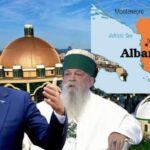For decades, communities under Traditional Authority (T/A) Kapeni in Blantyre would not seek medical and healthcare services even when there was an outbreak.
This exposed them to multiple health-related risks. Studies have suggested that societal attitudes, socio-cultural norms, lack of access to resources, and personal knowledge contributed to the communities’ failure to demand and access healthcare services.
Attitudes and social norms also impact care-seeking behavior among communities. Communication and interaction among couples, families, health care providers, and the broader community influence the uptake of health services and the adoption of health-seeking behaviors and healthy practices.
To promote health-seeking behavior, the Malawi Health Equity Network (MHEN) and the Government of Malawi have been providing tailored technical assistance to community structures—including facility-based providers and community health structures—to develop, adapt, and scale up evidence-based social and behavior change interventions.
They are doing this through Mother Care Groups (MCGs), which are an approach primarily used in international development settings, whereby social and behaviour changes are promoted through supported peer-to-peer (mostly mother-to-mother) knowledge sharing.
The aim of MCG is to promote improved infant nutrition, improve hygiene and increase the number of children who are fully vaccinated and exclusively breastfed for the first six months.
Global Alliance for Vaccines and Immunization (GAVI) is financing the project.
Speaking after visiting members of Mbira MCG in Village Head Kaipa in Blantyre recently, MHEN Assistant Project Officer Herbert Chakwawa said the network recognizes that transforming maternal and child health outcomes require more than simply improving the quality or availability of healthcare services.
“We must also address the health-seeking behaviors and practices of individuals and communities and the norms that underpin them. Thus, MCGs were established to increase individual and community demand for equitable, respectful, quality maternal, newborn, and child health services,” said Chakwawa.
He added that the project seeks to address barriers to equitable and quality immunization so that women, children and communities are able to access quality immunization services and healthcare and improved quality and uptake of immunisation services.
District Environmental Health Officer (DEHO) for Blantyre, Innocent Mvula, described MCGs as an important component in their health service delivery.
Mvula said MCGs are part and parcel of the District Health Office (DHO) as it creates a bridge between the office and communities.
“So we are working with them in different areas, and one of them is the immisation, what we call Expanded Program of Immunization. We are working with them as our link comes with the communities, before the coming in of MCGs,” he narrated.
Mvula disclosed that before the coming in of MCGs, his office used to face myriad challenges to provide vaccines to the children.
“One of them is on the zero dose children. Follow up of those zero dose children, because for us, we’re only depending on those children that come and not be claiming for immunization services. Yet there are a lot of children that are not coming, so how we follow those up was a challenge to us,” he explained.
He added, “MCGs are women that come from the community in which our health facilities are working. So these are like an entry point for us when it comes to immunization coverage.”
Follow and Subscribe Nyasa TV :
Sharing is caring!

















